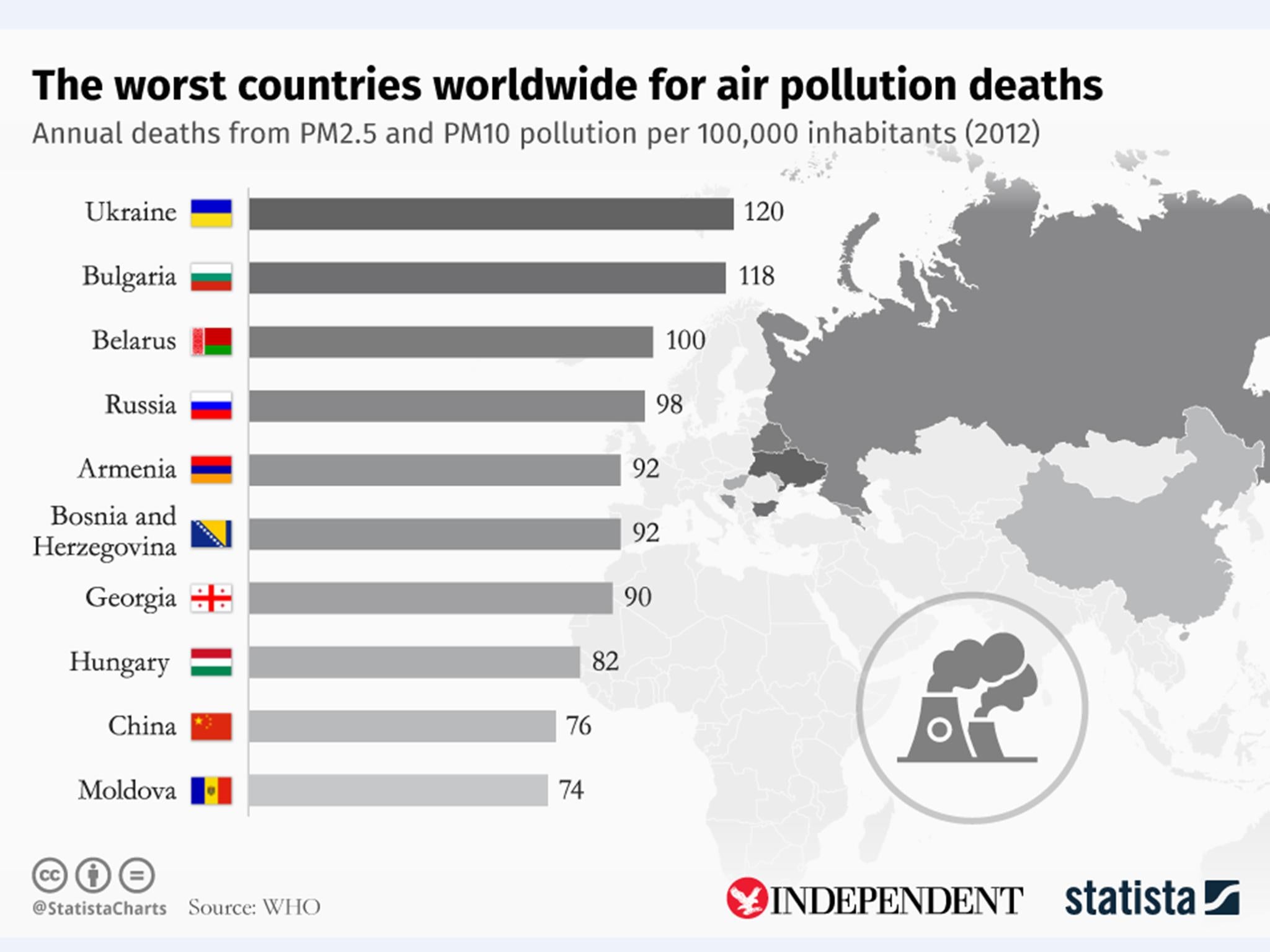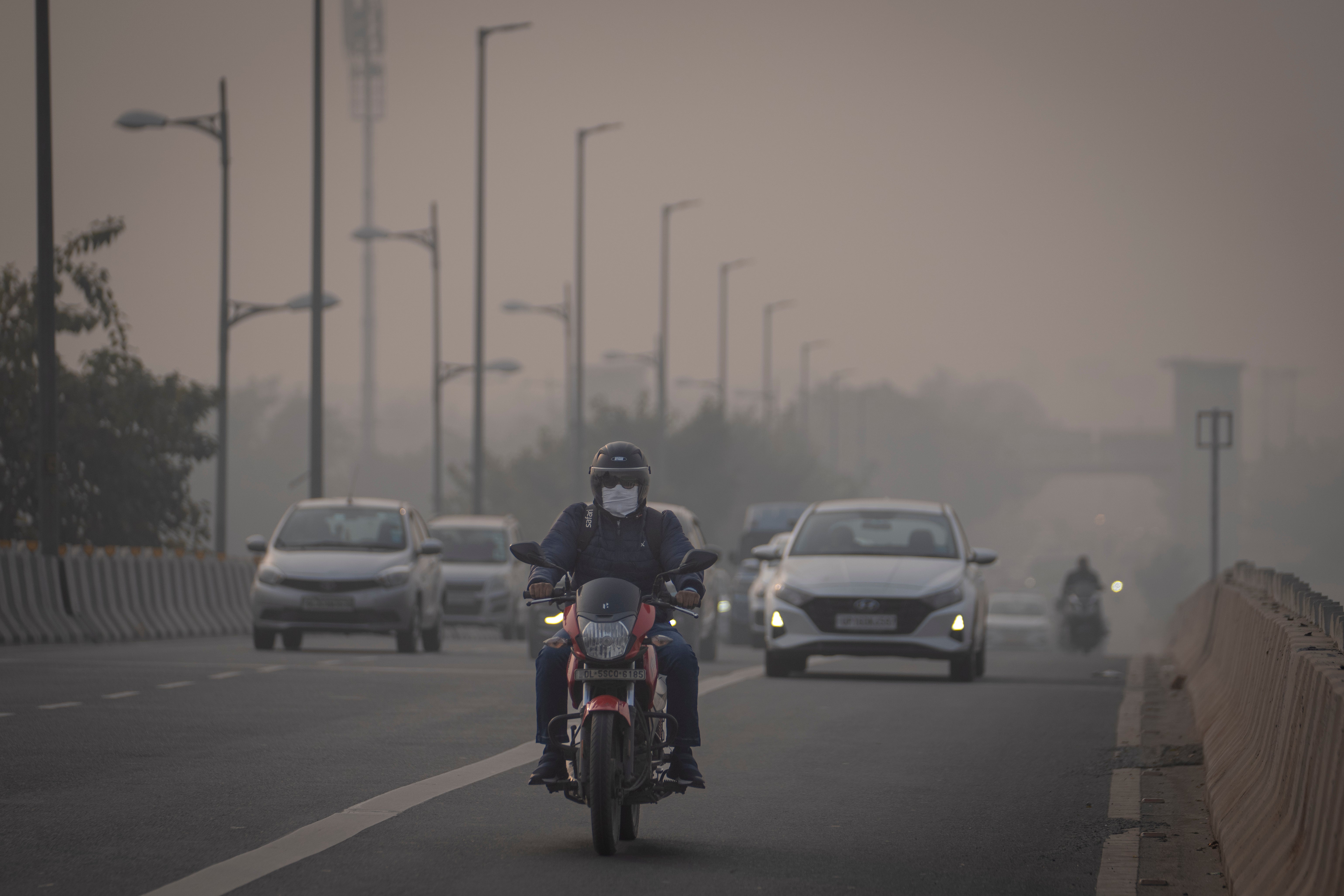Air pollution killed 135 million people in last four decades, landmark study finds
Asia accounted for over 98 million of the premature deaths linked to PM2.5 pollution
Air pollution caused around 135 million premature deaths worldwide in the past four decades, one of the most expansive studies to date has found, underlining the severity of the problem and urgency with which it needs to be tackled.
Researchers who examined data from 1980 to 2020 said air pollution cut life short for tens of millions of people by causing preventable or treatable diseases or strokes.
While many previous such studies focused on a narrower region or period, this study, carried out by Nanyang Technological University of Singapore, is one of the largest by far.
Researchers found that weather patterns like El Niño and changes in ocean temperatures made the impact of air pollution worse.
These weather phenomena can lead to stagnant air conditions, resulting in higher concentrations of PM2.5, which is fine particulate matter that can penetrate the lungs and even enter the bloodstream and cause chronic diseases such as asthma, heart attack and bronchitis.
The weather changes increased the number of premature deaths by 14 per cent.
“When certain climate events happen, like El Nino, pollution levels can go up, which means more people might die prematurely because of PM 2.5 pollution,” Steve Yim, an associate professor at Nanyang’s Asian School of the Environment, who led the study, said.
“This highlights the need to understand and account for these climate patterns when tackling air pollution to protect the health of the global population.”
Fine particulate matter “was associated with approximately 135 million premature deaths globally” from 1980 to 2020, the university said in a statement about the study, published in the journal Environment International.

PM 2.5 pollution is caused mainly by vehicular emissions, industrial processes, wildfires and dust storms.
Asia had the “highest number of premature deaths attributable to PM 2.5 pollution”, at over 98 million people, with China and India accounting for the bulk of the fatalities.
Pakistan, Bangladesh, Indonesia, and Japan also had significant numbers of premature deaths, ranging from two million to 5 million, the university said.
The study estimated that a third of the deaths linked to PM 2.5 pollution were caused by stroke, another third by heart disease and the remaining by lung-related diseases and infections.
The World Health Organization previously said the “combined effects of ambient air pollution and household air pollution” are associated with 6.7 million premature deaths worldwide every year.

Researchers at Nanyang used satellite data from Nasa to measure fine particulate matter levels in the air and analysed disease statistics from the Institute for Health Metrics and Evaluation and data on weather patterns from the US National Oceanic and Atmospheric Administration.
The study, which analysed over 40 years of data, provides a wider view of the impact of air pollution on human health and the link between common weather patterns and air quality.
However, the authors said further studies are needed to understand the impact of the climate crisis. “The effects of climate change and the environment on human health are not lesser than those of genomics and lifestyle patterns, and they have been increasing over the past decades,” Prof Joseph Sung, co-author of the study, said.
“By recognising these patterns, healthcare providers can better prepare for potential increases in patients seeking treatment for pollution-related ailments.”
Join our commenting forum
Join thought-provoking conversations, follow other Independent readers and see their replies
Comments
Bookmark popover
Removed from bookmarks